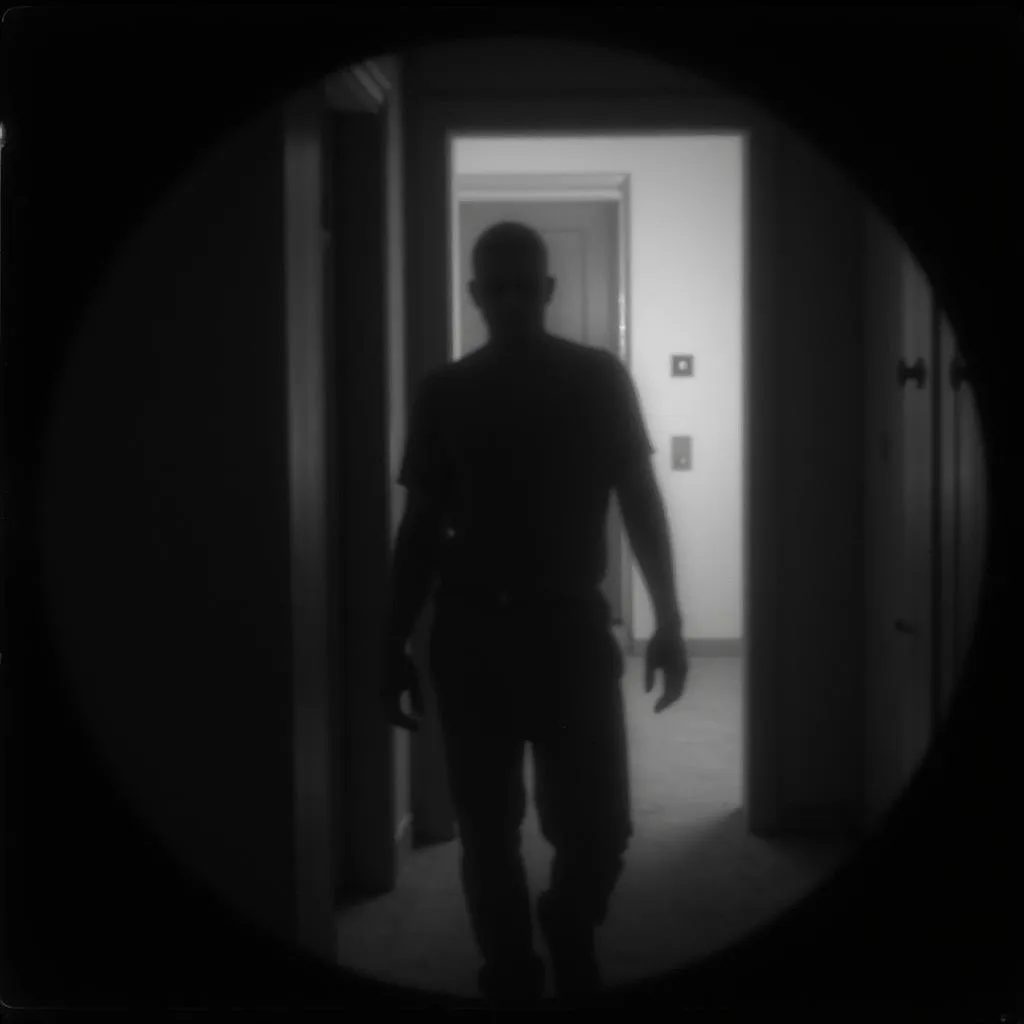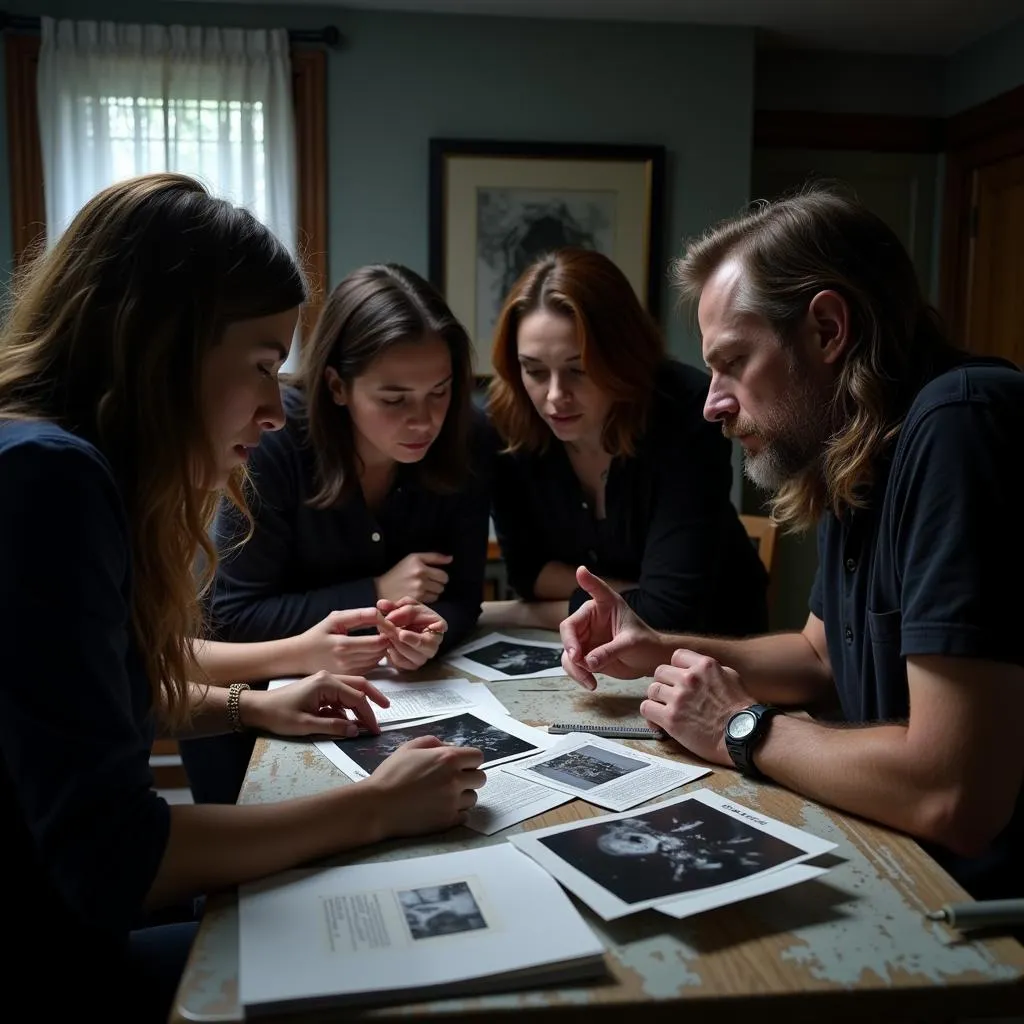The ability to conduct thorough and effective research is crucial in any field, but it’s especially vital in the world of paranormal investigation. Unraveling the mysteries of the unknown requires a unique blend of Skills In Research that go beyond traditional methods. As a paranormal researcher, you’re not just dealing with facts and figures, but also with the intangible and unexplained.
Sharpening Your Senses: Key Skills in Research for Paranormal Investigation
Whether you’re a seasoned ghost hunter or just starting to explore the realm of the paranormal, honing specific skills in research can significantly enhance your investigations. These skills will not only help you navigate the murky waters of paranormal claims but also allow you to approach each case with a discerning and critical eye.
Observation: The Cornerstone of Paranormal Research
In the world of the paranormal, keen observation is paramount. It’s not just about seeing what’s in front of you, but also about noticing subtle changes, anomalies, and patterns that others might miss.
- Developing a System: Create a structured observation method to ensure you’re capturing all relevant details during an investigation. This could involve using grids to map out locations, documenting environmental factors, or employing specific observation techniques like triangulation.
- Sensory Awareness: Paranormal activity can manifest in various ways, not just visually. Hone your senses to be aware of subtle changes in temperature, sounds, smells, and even electromagnetic fields.
- Objectivity is Key: Maintaining objectivity is crucial. Avoid jumping to conclusions or letting your biases influence your observations. Document everything you perceive, even if it seems insignificant at the time.
 Paranormal Research Observation
Paranormal Research Observation
Research Methods: Delving Deeper into the Unknown
Solid research methods are the backbone of any credible paranormal investigation. These methods provide a framework for collecting, analyzing, and interpreting data, ensuring your findings are as reliable as possible.
- Historical Research: Many paranormal claims are rooted in history. Delving into historical records, local lore, and firsthand accounts can provide valuable context and potential leads.
- Scientific Inquiry: Applying scientific principles, such as using EMF meters, thermal cameras, and audio recorders, can help capture objective evidence and rule out mundane explanations.
- Interview Techniques: Gathering firsthand accounts from witnesses is crucial. Develop strong interview skills that encourage open and honest communication while remaining respectful and non-judgmental.
Critical Thinking: Separating Fact from Fiction
Perhaps the most crucial skill in a paranormal investigator’s arsenal is critical thinking. This involves questioning everything, analyzing information objectively, and considering all possible explanations before drawing conclusions.
- Identifying Biases: Be aware of your own biases and how they might influence your interpretations. Actively seek out alternative explanations and be open to the possibility that the paranormal might not be the answer.
- Evaluating Evidence: Not all evidence is created equal. Learn to differentiate between compelling evidence and subjective interpretations. Scrutinize anecdotal accounts, photographic evidence, and audio recordings for inconsistencies or alternative explanations.
- Logical Reasoning: Develop strong logical reasoning skills to identify fallacies, inconsistencies, and gaps in logic within paranormal claims and evidence. This will help you construct more robust arguments and draw more informed conclusions.
 Paranormal Research Critical Thinking
Paranormal Research Critical Thinking
Expanding Your Toolkit: Additional Skills for Success
While the core skills mentioned above are essential, several other skills can enhance your effectiveness as a paranormal researcher.
- Communication: Clearly and concisely communicating your findings, whether through written reports, presentations, or online platforms, is vital for sharing knowledge and engaging with the wider paranormal community.
- Collaboration: Paranormal research often benefits from a team effort. Collaborating with others brings diverse perspectives, expertise, and resources to your investigations.
- Adaptability: The paranormal, by nature, is unpredictable. Being adaptable and flexible in your approach is crucial, as investigations can take unexpected turns, and new evidence may challenge existing theories.
Conclusion: Embracing the Journey of Paranormal Research
Mastering the necessary skills in research for paranormal investigation is an ongoing journey. It requires dedication, an open mind, and a willingness to constantly learn and adapt. By embracing these skills, you’ll not only be better equipped to explore the mysteries of the paranormal but also contribute to a more informed and critical understanding of this fascinating field.
FAQ
- What are the most important qualities of a paranormal investigator? The most important qualities are curiosity, skepticism, objectivity, and respect for the unknown.
- Is it necessary to have a background in science to conduct paranormal research? While a scientific background can be helpful, it’s not a requirement. A willingness to learn and apply scientific principles is essential.
- How can I get involved in paranormal research? You can join a local paranormal investigation group, attend conferences and workshops, or conduct your own research.
If you have any questions or need assistance with your Paranormal Research, do not hesitate to contact us. Phone Number: 0904826292, Email: [email protected] Or visit our address: No. 31, Alley 142/7, P. Phú Viên, Bồ Đề, Long Biên, Hà Nội, Việt Nam. We have a 24/7 customer support team.